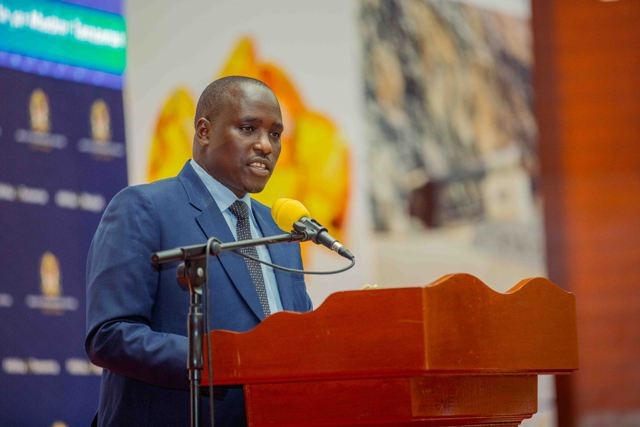
Dotto Biteko
TANZANIA is looking for cutting-edge technology to develop its uranium resources as it is set to become a significant player for the global nuclear energy sector.
Speaking at a panel discussion session on nuclear technologies held at the second Russia-Africa summit here at St Petersburg, the Minister for Minerals, Dotto Biteko said that Tanzania had a programme to develop the uranium resources, and was looking for new technology to help in developing the resources.
“We already have a uranium programme, but we now want to look at new technologies from other countries,” the minister is quoted in a statement availed after a panel discussion on nuclear technologies for development of African region held with the support of the State Atomic Energy Corporation, Rosatom.
Significant uranium deposits have been identified in various parts of the country mainly in Namtumbo (Mkuju), Bahi, Galapo, Minjingu, Mbulu, Simanjiro, Lake Natron, Manyoni, Songea, Tunduru, Madaba, and Nachingwea.
The government is focused to surpass a 10 per cent target of mineral sector contribution to the economy by 2025 as envisioned in the national development vision. The sector’s contribution to the economy reached 9.7 per cent as of the third quarter of 2022.
When the vision was prepared the mining sector’s contribution to GDP was estimated at 3.5 per cent.
“We need to add 10 per cent to our GDP, and uranium is one of them,” said the minister, according to the statement. “We want to breathe new life into our projects, and we invite everyone to do so.”
“About 30 per cent of our people live below the poverty line; we want to improve their quality of life. We have natural resources. God has given us everything we need, so we will achieve everything,” he said.
The discussion was opened by its moderator, Ruslan Edelgeriyev, Advisor to the President of the Russian Federation; Special Presidential Representative on Climate Issues.
“The African continent is home to more than one billion people, and it is predicted that by 2050, Africa’s population will triple and make up about one-third of the world’s total population. Africa is growing faster than ever, and in the near future, a very large part of its population will have an improved quality of life. But without stable access to energy and a developed energy system, no development is possible,” said Mr Edelgeriyev.
The experts agreed that one of the strategic tasks facing every state in the modern world is the introduction of technologies that will ensure energy security, guarantee the sustainable development of various sectors of the economy, and increase the scientific and human resource potential of the country.
“Africa is on its way from being one fifth of the world’s population to one third. At the same time, if you look at electricity generation globally, last year, approximately 30 trillion kilowatt hours of electricity was generated on the planet, while Africa generated less than one. And in that sense, this disparity cannot be sustained for long,” said Alexey Likhachev.
“It is clear that states on the African continent will be actively engaged in building power generation capacity in the coming decades,” added Alexey Likhachev, Director General, State Atomic Energy Corporation Rosatom.
“Right now, only more than 70 per cent of our population has access to electricity,” Chief Executive Officer, Rwanda Atomic Energy Board Fidele Ndahayo is quoted as saying in the statement.
“Nuclear power is about reliability. Nuclear power is not just about money. All studies show that it leads to economic growth in all spheres of life.”
Egypt Minister of Electricity and Renewable Energy, Mohamed Shaker El-Markabi, said that the development of nuclear energy in his country in co-operation with Rosatom has a positive impact on all spheres of life and work.
“We expect the number of jobs to increase ninefold. In addition, the country’s development strategy until 2035 states that by that time renewable energy sources should account for about 42 per cent, and nuclear power can help us with this,” he said.
